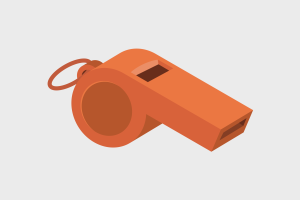Diversity, Equity and Inclusion
Resources for Students
Get involved!
Connect with others in the School of Public Health
The Diversity and Inclusion Ambassador Program enhances visibility, access, and support for underrepresented and historically marginalized communities within our school and the surrounding area.
The School’s diversity and inclusion initiatives are implemented with the guidance of the Diversity and Inclusion Committee.
A student-led group formed in 2022 to bring womxn together and provide opportunities for community building, leadership training, and advocacy.
Get help
Where to seek help in a crisis
Resources available to you and all students in the Brown community. Friends are often the first to notice that a student might be experiencing significant distress. You may be concerned that a friend or acquaintance is acting strangely or seems depressed, but it may not be clear how you might be helpful. Another student may have also brought a concern to you about someone he or she knows.
Located on the 4th Floor of Page-Robinson building (across from Room 411), this pantry shelf is stocked by donations from students, faculty and staff, and supplemented monthly by the Office of the Chaplains and Religious Life.
Local Food Pantries & Meal Sites. RI Food Bank works with more than 143 food pantries and meal sites which distribute perishable and nonperishable foods that you can choose from based on your dietary needs.
The SHARE (Sexual Harm Acute Response & Empowerment) Advocates in BWell Health Promotion are confidential resources at Brown that can provide support to any student from any part of the University (undergraduate, graduate, and medical students).
Answers to your questions about course registration, library resources, and research/funding opportunities.
Attending to physical, mental and emotional health and well-being is essential to student success.
The Title IX and Gender Equity Office is available to talk with all students, staff and faculty who have a question or need support in addressing gender-based discrimination or sexual violence.
Campus Affinity Spaces
Connect with others across the Brown University campus
A communal, learning, and advocacy center for members of the Brown community who identify with the undocumented, first-generation college, and/or low-income student experience.
Hosts events and programs that build and affirm community by centering our ways of knowing and being. We situate our lived experiences in a socio-historical context through self-reflection and critical dialogue. With an understanding of the structural causes of individual and communal experiences, we are then able to explore tangible ways to create change.
The Brown University LGBTQ Center offers spaces, programming and opportunities for LGBTQ+ students at Brown to connect socially and academically.
Seeks to provide a comfortable and engaging place for the campus community to explore the multiple dimensions of gender.
The office on campus at Brown University provides comprehensive support to military veterans, offering opportunities for ROTC training in various branches, Yellow Ribbon funding, and generous financial aid.
The Office of Women in Medicine and Science (OWIMS) at Brown is dedicated to the advancement of women faculty, residents, students and trainees.
Brown University Diversity and Inclusion Resources
SAS coordinates and facilitates services for students (including graduate students) and visitors with medical, physical, psychological, and learning disabilities.
Through various programs and initiatives, CSREA fosters creative approaches to entrenched problems through rigorous and accessible research, scholarship, education, performance, and art.
A scholarly research center with a public humanities mission.
Language matters. What we say can have profound effects on an individual’s sense of belonging, self-efficacy, and science identity.
Spreadsheet of Diversity and Inclusion funding opportunities
A site specifically for Black undergraduate students at Brown University. You will find an array of resources and ideas on how to care for yourself.
For Graduate Students
The BCSC sponsors various events for Graduate Students of Color (GSOC) throughout the academic year. Please subscribe to the weekly e-bulletin for updated news, events, resources, and opportunities.
It's okay to ask for help. At Brown, we care about the whole you and work with you to support your success.
University resources
It's okay to ask for help. At Brown, we care about the whole you and work with you to support your success.
Brown’s Graduate School attracts students from all over the world, providing rich opportunities to learn and collaborate in our increasingly global community. About a third of Brown’s graduate students come from outside the United States. A number of campus offices and local organizations are dedicated to helping international students make the transition to life in the U.S.
